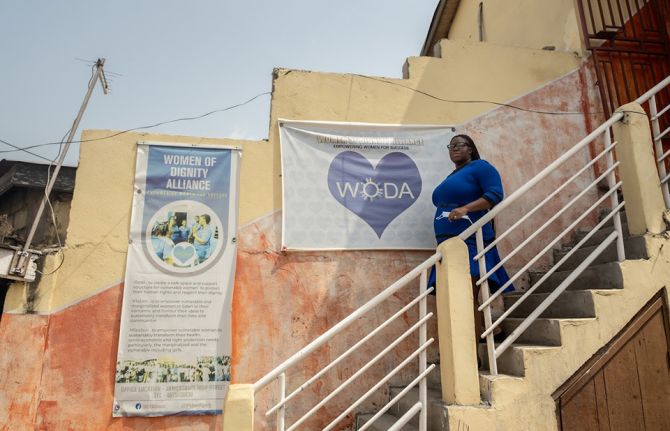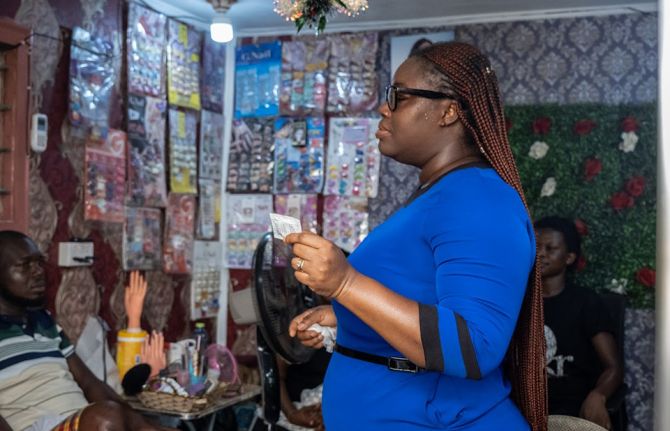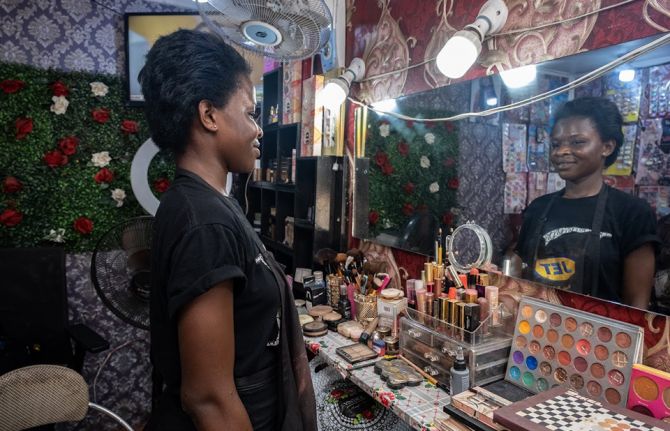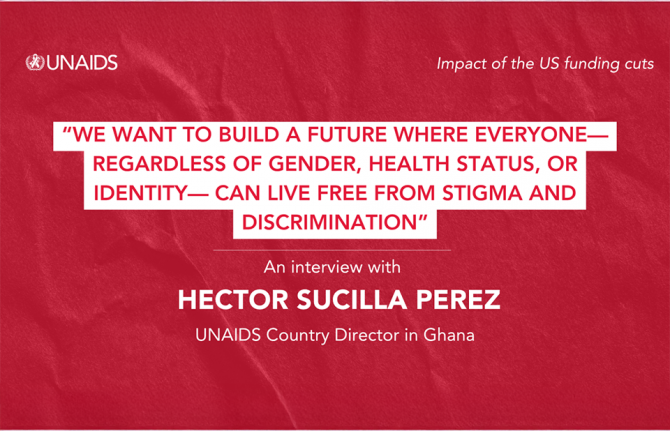



Feature Story
UNAIDS Solidarity Fund helps female sex workers in Ghana
04 February 2022
04 February 2022 04 February 2022Growing up in Jamestown, one of the oldest districts of Accra, Ghana, Susana Dartey saw the daily abuse and exploitation faced by female sex workers, which inspired her to set up the Women of Dignity Alliance (WODA) to empower female sex workers and fight the inequalities they face.
“Since sex work is illegal in Ghana, our members have been faced with a lot of abuse and cannot report this due to the fear of being arrested,” says Mrs Dartey, who serves as the Executive Director of WODA. WODA has grown from one member in 2016 to a team of 16 staff members, comprised of current and former female sex workers. “Belonging to the same neighbourhood, I found my voice through theatre and realized that I could use the same methodology or technique to give a voice to these women,” she added.
In Ghana, there are two categories of female sex workers—so-called roamers and seaters. Roamers are mobile and travel to clients, whereas seaters are stationary and work out of their homes or brothels. In 2020, HIV prevalence among female sex workers in Ghana was estimated to be 6.9%.
The COVID-19 pandemic has been challenging for sex workers in Ghana, with lockdown restrictions hampered their ability to work. Sex workers in the country have also reported feeling left out of the official support being given to society as a whole during the pandemic.
In the face of these obstacles, Mrs Dartey is determined to empower female sex workers to become role models for women in their community through the Women Empowered Through Social Entrepreneurship project, which is supported by the UNAIDS Solidarity Fund.
To address the socioeconomic problems brought about by the COVID-19 pandemic, WODA is nurturing promising social enterprises that are established, led, sustained and scaled up by the sex workers themselves, with the aim of empowering up to 400 sex workers, either directly or indirectly.
The three areas addressed by the programme are training on sustainable income generation, facilitation of COVID-19 prevention among sex workers and creating an opportunity for sex workers to be agents of change within their communities.
Mrs Dartey explained how the sex workers are undergoing training in skills as diverse as beauty treatment, soap-making, confectionery production, breadmaking and floral decoration. The beneficiaries of the project are educated in the operating practices of social enterprises and are given opportunities to learn entrepreneurial skills from experts.
“As a roamer for eight years, I have never experienced the kind of hardship COVID-19 has brought to my work. Before COVID-19 set in, I could make up to 230 Ghana cedis daily, but these days it’s very difficult to even make 50 Ghana cedis. When Susana informed me about the UNAIDS Solidarity Fund supported initiative, I was so glad. I love to make ladies look good, so I am eagerly looking forward to acquiring skills in pedicure, manicure and make-up artistry to earn a livelihood,” said one of the beneficiaries.
A part of enabling key populations and vulnerable communities to survive the hardships brought about by the COVID-19 pandemic is to support sustainable income-generating solutions that emerge from those communities. The UNAIDS Solidarity Fund was established to highlight the ingenuity of key populations by enabling access to finance for establishing sustainable social enterprises.
“My hope is to bring these women together to set up a goal for themselves. This project is looking at their future and at the end of the project the sex workers will have set up social enterprises that belong to them,” said Mrs Dartey when asked about her hopes for the project.
A beneficiary of the project who aspires to establish a make-up studio said, “I met Susana in the early part of 2021 and that was the beginning of a new me. Through WODA, I can now boast of some skills in make-up artistry and wig cap-making.” She also calls for sex work to be legalized. “I want sex work to be made legal so that the police will stop arresting and abusing us,” she added.
Region/country
Related
 Impact of US funding cuts on HIV programmes in Ghana
Impact of US funding cuts on HIV programmes in Ghana

08 April 2025


